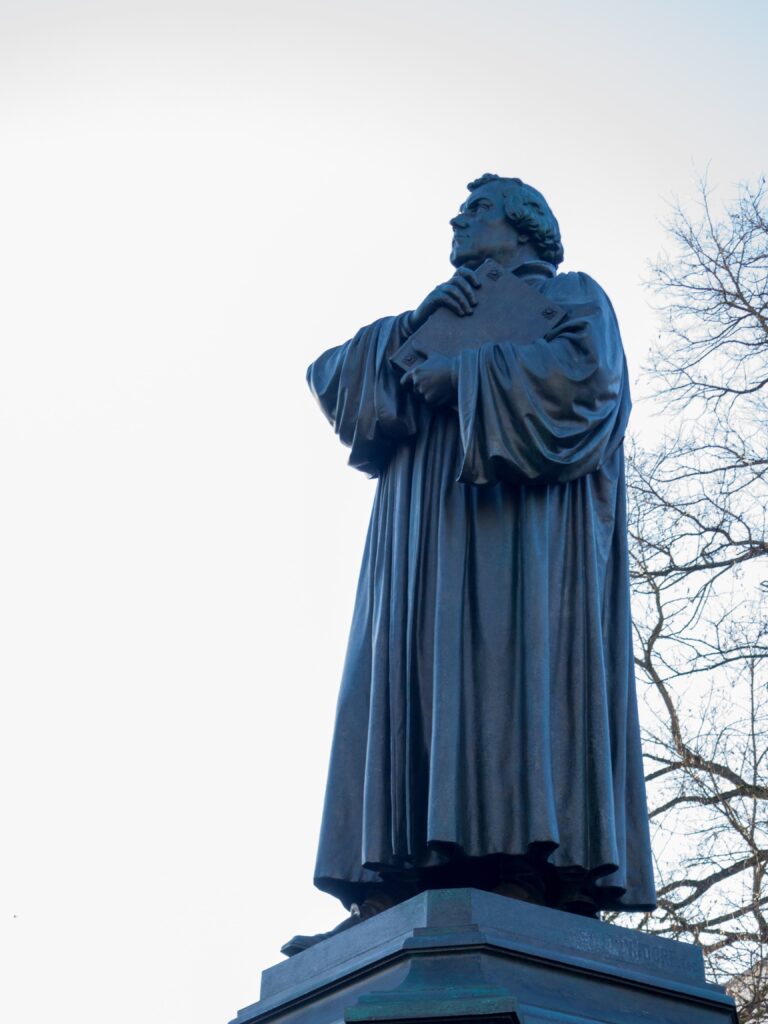Between candy, costumes, spooky stories and haunted houses, there lies Christian celebrations amongst the days of Oct. 31-Nov 2. Reformation Day is recognized by Protestants on Oct. 31 and the celebrations of All Saints Day and All Souls Day is recognized mainly by the Catholic Church, but Protestant churches may also celebrate.
The reformation of the Christian church in 1517 began when monk Martin Luther nailed 95 theses on the Castle Church’s door in Wittenberg, Germany on Oct. 31, according to legend. (There is speculation that Luther did not nail the 95 theses to the door, but instead mailed them to an archbishop.) According to history.com, “Luther condemned the excesses and corruption of the Roman Catholic Church, especially the papal practice of asking payment—called “indulgences”—for the forgiveness of sins.” A new invention at the time, the printing press, had great impact into spreading the reformation.“[I]n the 1450s, (the printing press) became the single most important factor in the success of the Protestant Reformation by providing the means for widespread dissemination of the ‘new teachings’ and encouraging independent thought on subjects previously rigidly controlled by a literate elite,” according to worldhistory.com.
The Reverend Timothy Breen, lead pastor of First Reformed church in Orange City and BTS professor, celebrated Reformation Day. “Reformation Day is an annual reminder that the Church – called to be light in darkness and salt amid decay – must always evaluate her beliefs, practices and witness against the Bible,” said Breen. “Without ‘always reforming according to the Word of God,’ the Community of Faith risks fading into a grey, undifferentiated institution, governed by and chasing after the values of the society it ought to be impacting.”
Also called Hollow’s Day, All Saint’s Day is a Christian holiday to celebrate the saints on Nov. 1. According to nationalshrine.org the celebration began in 609 A.D. when Pope Boniface IV declared a day to celebrate the Virgin Mary. The celebration evolved when Pope Gregory III and Pope Gregory IV declared Nov. 1 as the celebration date and extended the celebration to commemorate all saint’s, eventually extending the celebration to the universal church. “On the Solemnity of All Saints, Nov. 1, the Church celebrates those Christians who achieved spiritual maturity. It is a day to venerate all the holy men and women who have been canonized by the Church,” according to nationalshrine.org.
NW celebrated All Saints Day with a chapel of lament, grief and joy. “This chapel was a really good service and I greatly appreciated the purpose of it,” said Marissa Leraas.
The following day, Nov. 2, is the celebration of All Soul’s Day, a day in which the Catholic Church recognize a day of “a day for commemoration of all the faithful departed,” according to Britannica.com. According to Nationalshrine.org: “the Commemoration of All the Faithful Departed (All Souls’ Day), the Church remembers and prays for the faithful departed: our brothers and sisters who have died marked with the sign of faith.” Christians of the Catholic faith use this day to pray for the souls in purgatory.
Although All Saint’s Day and All Soul’s Day are recognized as Catholic celebrations, Catholicism is not a requirement to celebrate. In Mexican and Mayan culture, All Soul’s Day is observed as Día de los Muertos, the day of the dead, where family members celebrate the life of deceased loved ones through shining festivities. In Poland, this day is as special as Christmas or Easter, according to familysearch.org.
Dr. James Mead, a Biblical and Theological Studies professor, recognizes Reformation and All Saints Day as an ordained presbyterian pastor. “Like most people of my generation, I grew up thinking only about Halloween, but my Presbyterian church would at least recognize Reformation Day,” Mead said. “I went to a Catholic college, so I learned about All Saints Day there. As a Presbyterian pastor I tried to emphasize an ecumenical perspective on the importance of both Reformation Day and All Saints Day. At this past Sunday’s service, we sang Martin Luther’s hymn, ‘A Mighty Fortress is our God,’ but we also talked about the fracture between Protestantism and Catholicism, praying for divisions to end.”
